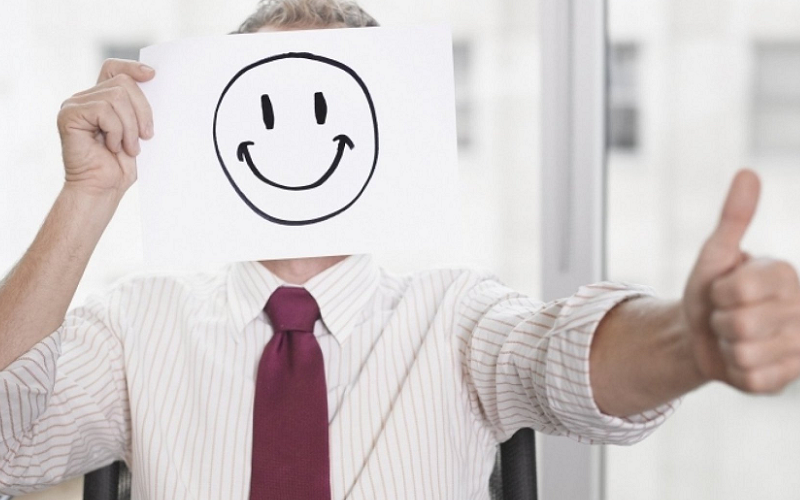
Humor is often considered the best medicine, but is there a scientific basis for this age-old adage? Here we explore the intricate ways in which humor not only lifts our spirits but also plays a crucial role in our cognitive well-being. From the psychological mechanics of laughter to the neurological pathways it stimulates, we examine how humor impacts memory, creativity, and problem-solving skills.
Contents
The Science Behind Humor
When we talk about humor, it’s not just about the jokes we hear or the sitcoms we watch. There’s a whole science behind why something is funny and how our brain processes it.
Psychological Perspective of Humor
The psychology of humor is a complex field that examines how and why we find things funny. Humor often arises from unexpected connections or a sudden shift in perspective. Psychologists suggest that humor involves cognitive processes like pattern recognition, memory, and emotional response. It’s not just the content that makes something humorous, but also the context and our personal experiences and beliefs. Humor can serve as a social tool, strengthening bonds and signaling intelligence and creativity.
Neurological Basis of Humor
Moving from the psychological to the neurological, humor is not just a mind game but also a brain game. The process of understanding a joke and finding it amusing involves several areas of the brain. The left hemisphere is primarily responsible for understanding the words and structure of the joke, while the right hemisphere helps in getting the joke’s meaning or irony.
The frontal lobe, particularly the prefrontal cortex, plays a key role in appreciating the humor and emotional responses associated with it. Moreover, the limbic system (including the amygdala and hippocampus) is involved in the emotional and memory aspects of humor [1].
The Role of Endorphins and Dopamine in Humor
Humor does more than tickle our funny bone; it triggers a cascade of physical and chemical responses in our bodies. Laughter, a common response to humor, activates the release of endorphins, the body’s natural feel-good chemicals. These endorphins promote an overall sense of well-being and can temporarily relieve pain.
Additionally, laughter increases dopamine release, a neurotransmitter often referred to as the ‘reward chemical’. This release contributes to feelings of pleasure and satisfaction, similar to the sensation one might feel after eating a delicious meal or exercising. This chemical reaction not only enhances our mood but also has potential long-term benefits for our brain health, such as improved stress management and resilience.

Humor and Cognitive Functions
While humor keeps us entertained and emotionally uplifted, its benefits extend far beyond just making us feel good. It plays a significant role in various cognitive functions, impacting areas such as memory, creativity, and problem-solving skills.
Humor’s Impact on Memory
Laughter and humor have a remarkable effect on memory retention. Studies have shown that the engaging and enjoyable nature of humorous material makes it more memorable compared to non-humorous content. This is partly because humor activates the brain’s dopamine reward system, which creates a stronger association with the material being learned [2].
Additionally, the relaxation effect of laughter reduces stress, which can otherwise hinder learning and memory. Educational settings have started to utilize humor to enhance learning experiences, finding that it not only improves recall but also increases attention and engagement in students.
Humor Enhances Creativity
Humor is not just about reacting to something funny; it often requires a creative leap to understand or produce. This connection between humor and creativity is profound. Engaging with humor can stimulate lateral thinking and the ability to view situations from different perspectives.
When we laugh, our mental stress is reduced, which can unblock thinking processes and lead to more innovative ideas and solutions. This creative boost is particularly beneficial in collaborative settings, where humor fosters a relaxed atmosphere conducive to free-thinking and brainstorming.
Humor Improves in Problem-Solving Skills
The link between humor and problem-solving skills is an area of growing interest. Humor encourages a playful and exploratory approach to problems, often leading to unconventional solutions. The positive emotions evoked by humor can broaden an individual’s thought processes and foster analytical thinking.
When faced with challenges, individuals with a good sense of humor may be more resilient and adaptable, turning to creative solutions rather than becoming overwhelmed. In essence, humor can transform the way we approach problems, making us more flexible and open-minded in our thinking [3].
Humor as a Stress Reliever
The ability of humor to alleviate stress is perhaps one of its most universally recognized benefits. Here we explore how humor not only serves as a temporary distraction from stressors but also has physiological effects that reduce stress and its negative impact on the brain.
Physical Effects of Stress on the Brain
To fully appreciate humor’s role in stress relief, it’s crucial to understand how stress affects the brain. Chronic stress can have detrimental effects, such as impairing brain function and contributing to mental health issues like depression and anxiety. It can also affect the size and structure of certain brain regions, including the prefrontal cortex, which is responsible for executive functions and the hippocampus, crucial for memory and learning. This impact can lead to decreased cognitive abilities, such as impaired memory, decision-making, and emotional regulation.
How Humor Mitigates Stress
Humor can counteract these effects by inducing physiological changes that mitigate stress. Laughter triggers the release of endorphins, the body’s natural painkillers, and reduces the level of stress hormones like cortisol and adrenaline. This not only provides a sense of relief and well-being but also helps in reducing the physical tension and stress in the body. The act of laughing also stimulates circulation and aids muscle relaxation, both of which can help reduce some of the physical symptoms of stress.
Case Studies and Examples of Humor and Stress
Research and real-world examples further underscore the stress-relieving power of humor. Studies have shown that people with a good sense of humor tend to have better coping mechanisms when dealing with stress, indicating a lower stress response overall. For instance, in high-stress professions, humor is often used as a coping strategy to manage job-related stress [4].
Similarly, in medical settings, laughter therapy has been employed to help patients cope with the stress and pain associated with chronic illnesses. These instances highlight not just the psychological, but also the tangible physiological benefits of humor in stress management.

Humor in Therapeutic Settings
Humor’s potential extends beyond everyday stress relief and cognitive enhancement; it also has a place in more formal therapeutic settings.
Laughter Therapy and Its Applications
Laughter therapy, an innovative therapeutic approach, harnesses the natural physiological process of laughter to help improve health and wellness. This therapy often involves group sessions where participants engage in activities that stimulate laughter, such as watching comedies, participating in laughter yoga, or simply sharing funny stories.
The benefits of laughter therapy are vast, ranging from improved immune system function and pain reduction to stress relief and improved mood. In particular, laughter therapy has shown positive results in the elderly and those suffering from chronic illnesses, demonstrating how laughter can be a powerful tool in improving quality of life and emotional well-being.
Humor in Psychological Treatments
In psychological treatments, humor is increasingly being recognized for its therapeutic value. Psychologists and therapists may use humor to build rapport with clients, create a more relaxed and open environment, and introduce new perspectives on challenging issues.
When appropriately used, humor can be a powerful tool for breaking down barriers, challenging negative thought patterns, and providing a coping mechanism for dealing with difficult emotions. It’s important to note that the use of humor in therapy must be sensitive to individual differences and backgrounds, ensuring that it is inclusive and respectful.
Benefits of Humor for Mental Health Conditions
The application of humor in treating various mental health conditions has garnered significant interest. For instance, studies have shown that humor can be particularly effective in managing depression and anxiety. By promoting a positive mood and offering a different perspective, humor can help alleviate symptoms of these conditions [5].
Additionally, humor has been used as a complementary approach in treating conditions like schizophrenia, where it can help improve social interaction and reduce social anxiety. These examples highlight the potential of humor as a therapeutic tool, not just for temporary relief but for long-term mental health benefits.
Everyday Implications of Humor
The benefits of humor extend well beyond specialized settings and into our everyday lives. Understanding how humor can be integrated into various aspects of our daily routine can enhance not only personal well-being but also improve our interactions with others.
Incorporating Humor in Daily Life
Incorporating humor into our daily life is a simple yet effective way to boost mental health and enhance quality of life. This can be as straightforward as watching a funny movie, reading a humorous book, or engaging in playful banter with friends and family. These activities not only provide a source of entertainment but also help in relieving stress, improving mood, and fostering a positive outlook.
Humor can also be a powerful tool in dealing with daily challenges, providing a light-hearted perspective that can make obstacles seem more manageable. Additionally, creating a habit of finding humor in everyday situations can lead to a more joyful and fulfilling life experience.
Humor in the Workplace
The role of humor in the workplace is increasingly recognized as vital for a positive work environment. Humor can improve workplace culture by breaking down barriers, enhancing team bonding, and reducing stress. It can also be an effective tool for communication, making messages more memorable and engaging. Leaders who use humor appropriately can improve their relatability and effectiveness in managing teams. However, it’s important to use humor sensitively and inclusively in professional settings, ensuring it is appropriate and respectful of all colleagues.
Social Aspects of Humor
Socially, humor plays a critical role in building and maintaining relationships. It can act as a social lubricant, easing conversations and helping to form bonds with others. Sharing a laugh can create a sense of camaraderie and trust, which is essential in both personal and professional relationships.
Humor also plays a role in cultural expression and identity, allowing people to connect over shared experiences and viewpoints. However, it’s essential to be mindful of differences in humor appreciation across cultures to ensure that it fosters inclusivity and understanding.
References
[1] Laughter is the Best Medicine
[2] The Use of Humor in Serious Mental Illness
[3] Stress relief from laughter? It’s no joke
[4] Laughter: Good for Your Brain
[5] Humor in Psychiatry: Lessons From Neuroscience, Psychopathology, and Treatment Research

